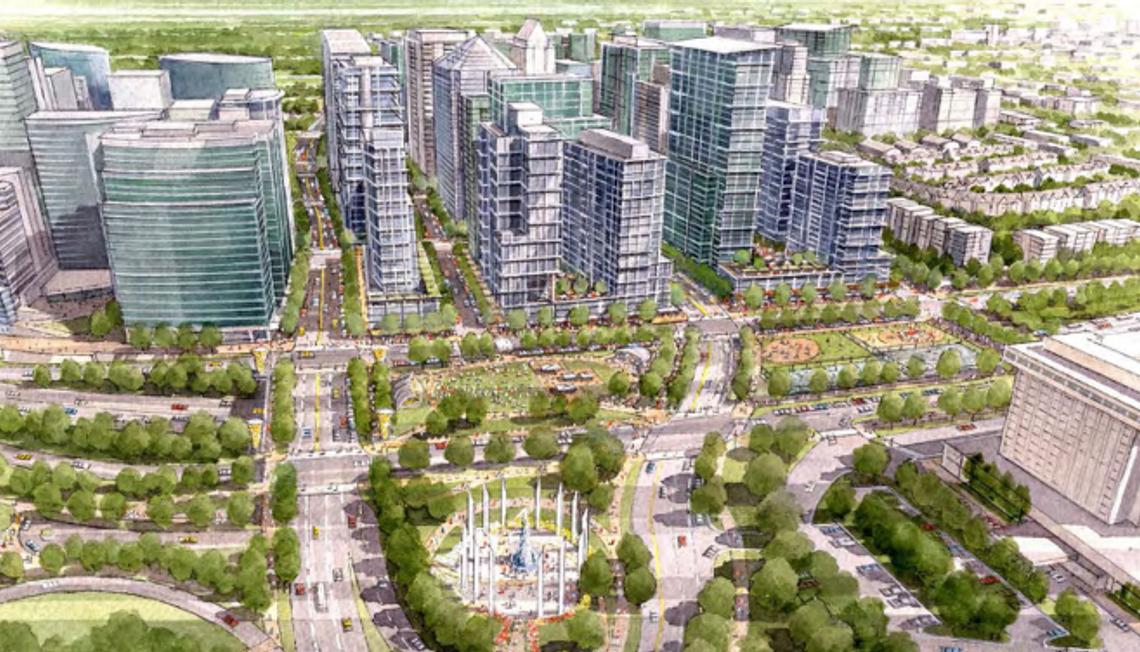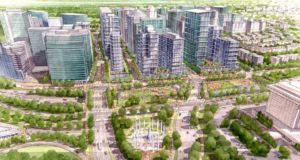Arlington County officials want to remake the Downtown Rosslyn neighborhood into a more lively / dynamic, walkable mix of workplace, housing, retail and public areas that include modern buildings — which they think will attract commercial and residential tenants.
This is a winning formula that Arlington pioneered decades ago, when it constructed shops, offices and apartments buildings around Metro stops in Clarendon, Ballston and the Court House neighborhood. Now, the concept is being tried in many neighborhoods, including Tysons Corner and the White Flint neighborhood in North Bethesda.
The plan is to have residents and visitors stay long past 5 p.m.
The office vacancy rate is at 30%, which is alarming in a county that commercial property taxes provide about half the government’s operating revenue. Hoskins said it is costing Arlington $34 million per year. He said he would like Rosslyn to become more lively, perhaps luring some of the crowds from Georgetown, the tourist-filled D.C. neighborhood just across the Potomac. Hoskins said, like Brooklyn is to Manhattan, Bellevue to Seattle, or Cambridge to Boston.
Over the next 25 years, envisions parks and plazas east of the Rosslyn Metro station would host festivals and other public events. An expanded 18th Street corridor would create a green walkway through Rosslyn’s midsection to the eastern edge, modeled after New York’s High Line Park.
The plan also calls for remaking Gateway Park, into something more active; and for building a pedestrian and bicycle bridge to connect Rosslyn with the regional trail system. Several major one-way streets would become two-way streets, and that change would slow traffic and be more pedestrian-friendly.
Arlington lawmakers also approved a plan for western Rosslyn last week that will reduce the size of the heavily used Rosslyn Highlands Park in order to make room for more offices and apartments, replace an old fire station and add a sorely needed school and more affordable housing.
About 28,000 workers come to Rosslyn’s buildings on weekdays. But the neighborhood desperately needs more nightlife.
[h/t] Washington Post







